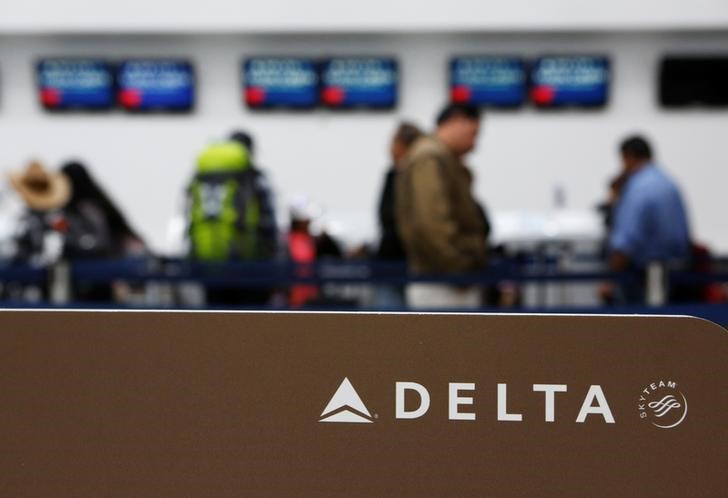This post was originally published on this site
https://i-invdn-com.akamaized.net/news/LYNXNPEC0D0AP_M.jpg
The airline reported an adjusted loss per share of $4.43 for the June 2020 quarter on adjusted revenue of $1.2 billion, the lowest revenue level since the mid 1980s.
At 7:20 AM ET (1120 GMT), Delta’s stock fell 2.2%, adding to losses of over 50% from the beginning of the year.
“A $3.9 billion adjusted pre-tax loss for the June quarter on a more than $11 billion decline in revenue over last year, illustrates the truly staggering impact of the COVID-19 pandemic on our business,” said Ed Bastian, Delta’s chief executive officer.
“Given the combined effects of the pandemic and associated financial impact on the global economy, we continue to believe that it will be more than two years before we see a sustainable recovery.”
The costs related to the Covid-19 outbreak totaled $3,2 billion in the second quarter alone.
More positively, Delta ended the June quarter 2020 with $15.7 billion in liquidity, cutting its daily cash burn to an average of $27 million for the month of June, a 70 percent decline from levels in late March. This means it has sufficient liquidity at the current burn rate to last for 19 months without having to raise additional cash. Around one-third of that liquidity is in the form of grants and loans under the CARES Act.
Delta said last month that it expected to cut its average daily cash outflow to about $40 million by the end of June, from about $100 million at March 31, so it’s ahead of that aim. The carrier added that it wanted to reduce cash burn to zero by year-end.
Bastian also said that the airline may be able to avoid involuntary furloughs in the fall after receiving interest from many thousands of its employees for early exit deals.
Stay up-to-date on all of the upcoming earnings reports by visiting Investing.com’s earnings calendar

